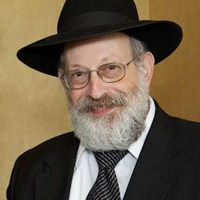The Jewish Story of Education, And What It Means for School Choice
The small flames flickering in the windows of Jewish homes this time of year, commemorating the festival of Chanukah, belie the holiday’s monumental message—a message, as it happens, that resonates powerfully today.
On its surface, Chanukah celebrates the successful rebellion of the Jews in the Holy Land against the Seleucid Empire. But the holiday holds a deeper meaning. It marks the very idea of Jewish identity, continuity…and education.
In fact, the word “chanukah,” which literally means “dedication” (a reference to the rededication of the Jewish Holy Temple, which had been defiled by the Seleucids), is rooted in the Hebrew word for education: “chinuch.”
For the victory lay not only in the retaking of a small piece of geography but in the retaining of a large piece of conceptual property: the preservation of the Jewish religious tradition—and its transmission to the next generation, and from it to future ones.
The enemy at the time of the Maccabees, the heroes of the Chanukah story, was less the Seleucid empire as an occupation force than that empire’s goal: to erode the beliefs and observances of Judaism. That larger society sought to acculturate the Jewish people, to force them to adopt its own “superior,” “sophisticated,” secular Greek philosophy. And thus the Jewish victory, when it came, was a triumph of…Jewish education.
And so, the miracle recounted at the time, the Temple candelabra’s supernatural eight-day burning of a one-day supply of oil, is poignant. Light, in Jewish tradition, means Torah, the teachings and laws that comprise the Jewish religious heritage.
Education, after all, is much more than the transfer of information—much more, even, than training minds to think. It is the imparting of attitudes, ideals, and values, particularly today, when so often both parents (when there are two) are working full-time.
Even the custom of playing with the spinning toy called a dreidel, Jewish sources explain, is a reminder of the secret of Jewish continuity. The Seleucids had forbidden the study of Torah, which they rightfully regarded as the engine of Jewish identity and continuity. The spinning toy was a subterfuge adopted by Jews when they were studying Torah in pairs or groups; if enemy inspectors were sensed nearby, the students would suddenly take out dreidels and spin them, masking their study session with an innocuous game.
Thankfully, in the wonderful country in which we American Jews are privileged to live, the government does not—indeed, may not—interfere with the choices religiously observant Jews make regarding their lives and their children’s education. That is something sensitive Jews do not take for granted, and for which we are grateful daily.
And yet for years the Constitution’s wise forbiddance of government to endorse any religious faith has become construed as forbidding any aid to families who choose religious schools as the arbiters of their children’s educations.
That has begun to change. In 2002, the U.S. Supreme Court determined the concept of providing parents educational vouchers with which to guide their children’s education, even if those parents choose religious schools, does not violate the Constitution. The key is families can use their vouchers at both secular and religious options, so in no case can any religion be forced upon anyone against their wishes.
Unfortunately, the concept of allowing parents with strong religious beliefs such choices has not yet impelled more than a limited number of states or localities to actually offer educational vouchers to all parents of schoolchildren.
Yet, is there any reason why parents—all parents—should not have the final say in where their children are educated? We readily recognize that parents in a pluralistic society like ours have a right to raise their children as they see fit, within the bounds of law, instilling in them the values they hold dear. In Judaism—and surely other belief systems and philosophies—that is not only a right but a deep responsibility. Choosing the right school for a child should be seen as an essential expression of that right and responsibility.
Education, after all, is much more than the transfer of information—much more, even, than training minds to think. It is the imparting of attitudes, ideals, and values, particularly today, when so often both parents (when there are two) are working full-time. It would be folly to deny that schools help shape a child’s development. Should parents not have the final say about which ones nurture their young?
There is straightforward justice in empowering all parents to choose how their children are educated, to exercise what is perhaps the most important civil right of all.
The Maccabees had to engage in a war to defend the right to impart their faith and values to their children. American Jews, Christians, Muslims, and others, have always enjoyed that right, thanks to the First Amendment.
But a struggle—in legislatures, not on battlefields—remains for us too, to advance the recognition that school choice is not only legal, but also just and compelling.




